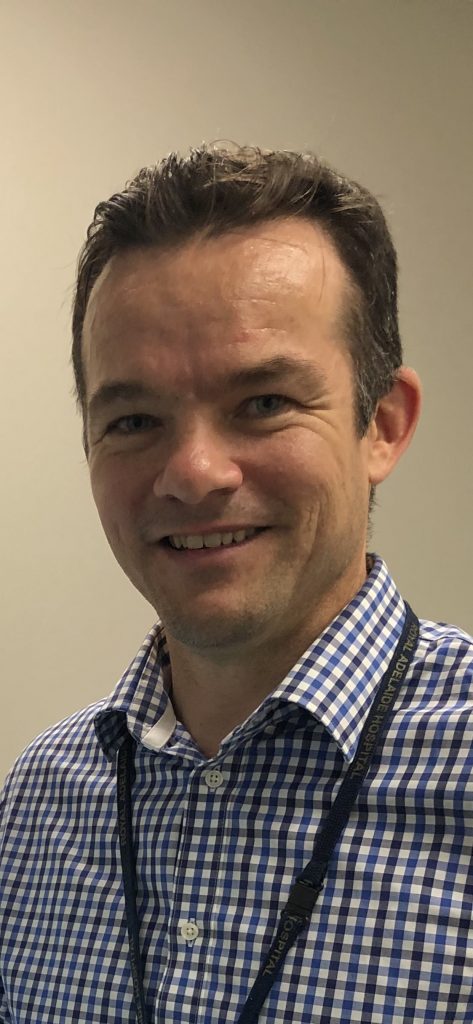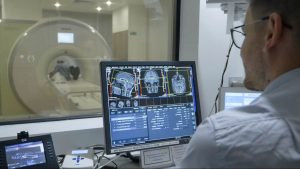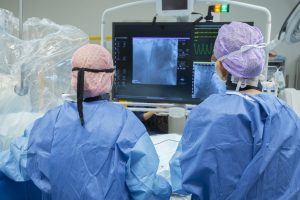A world-leading stroke trial investigating early “keyhole” brain surgery to treat acute intracerebral haemorrhage (ICH), or bleeding into the brain, is about to move to the next phase.
ICH makes up about 15 per cent of all strokes and is devastating; causing around one in 20 deaths worldwide and severe disability in most survivors.
Associate Professor Tim Kleinig and the Royal Adelaide Hospital stroke team are leading the EVACUATE trial, which tests early minimally invasive brain surgery in patients who present with these large haemorrhages.
The research, in collaboration with RAH neurosurgeon Amal Abou-Hamden, as well as collaborators in Melbourne and New York, suggests that the same treatment principles of the more common acute ischaemic stroke can be applied in ICH.
“Surgical treatments of ICH are unproven, but we think that if surgery is performed early enough, we can stop the expansion of bleed and the toxic effects of blood in the brain can be reversed by direct removal,” A/Prof Kleinig said.
“There’s no doubt that if this trial is positive, and we sincerely hope it is, it will change practice worldwide.”
Phase two – a randomised control trial of usual treatment or minimally invasive surgery – will begin soon at the RAH and the Royal Melbourne Hospital, then progress to all major stroke centres around the country.
The RAH is also participating in a second study called STOP-MSU, led by the Royal Melbourne Hospital. This study is examining the effects of administering tranexamic acid within less than two hours, which has proved to limit a major haemorrhage from evolving in other settings.
A/Prof Kleinig presented the latest on his research at RAHsearch, during CALHN Research Week. You can view the session on the Central Adelaide LHN Facebook page.
RAHsearch is free and proudly sponsored by the RAH Research Fund and The Hospital Research Foundation.



